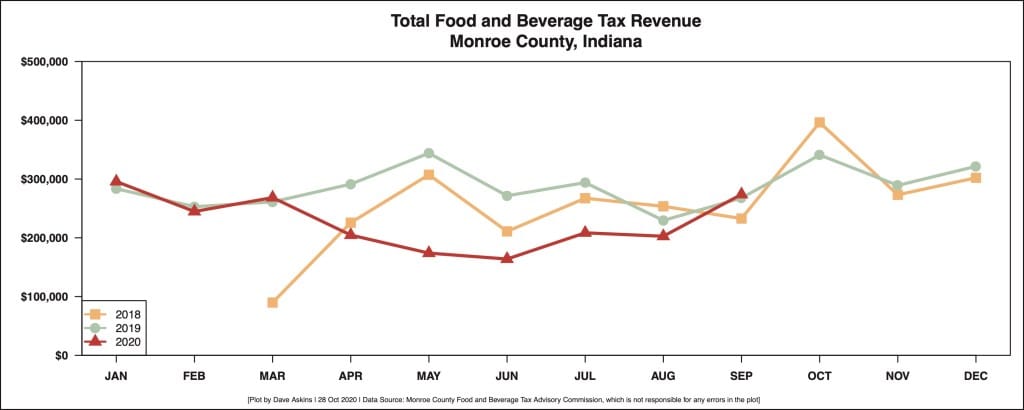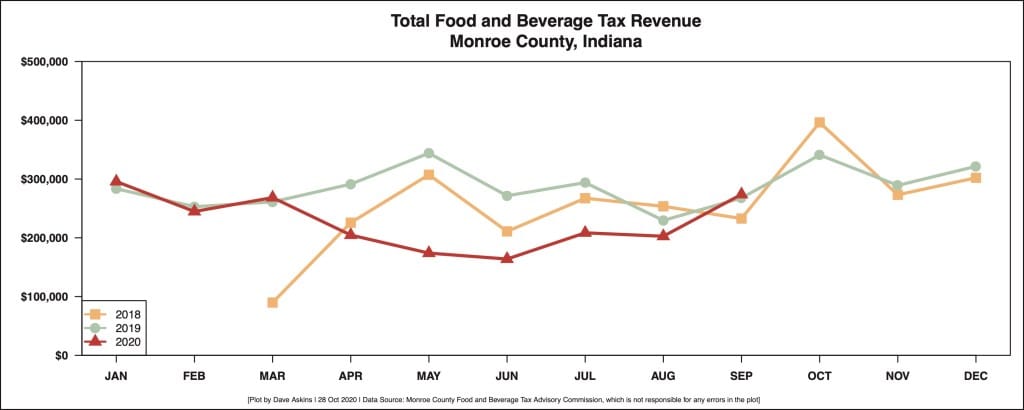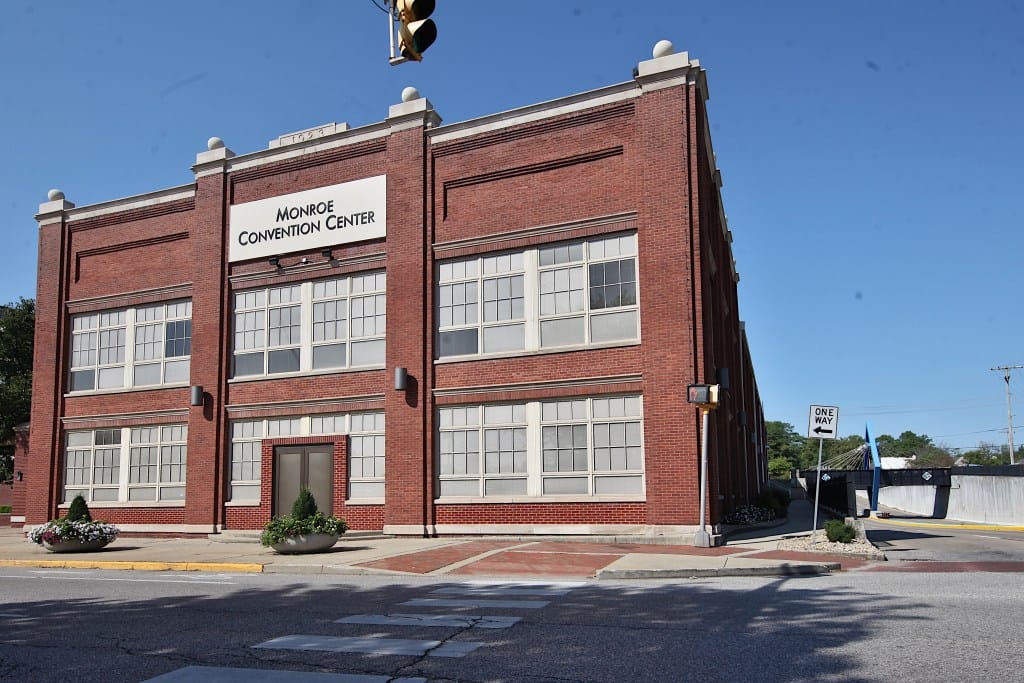Monroe County commissioners set Nov. 16 meeting to get public feedback on planned convention center expansion



A public input session on the future of the Monroe County convention center has been set for Monday, Nov. 16, at 6 p.m. It will be conducted by video conference.
President of the county board of commissioners Julie Thomas made the announcement at the end of the board’s regular Wednesday morning meeting.
When The Square Beacon touched base with county council president Eric Spoonmore, he said, “It’s a good idea,” to have a meeting on the topic. Spoonmore added that it’s important to reach out to Bloomington officials to make sure they are included in the meeting.
The backdrop to the announcement includes an uncontroversial six-month pause to the project caused by the COVID-19 pandemic. But before that, the project had already been stalled for 10 months in a controversial way, over governance issues. The architect for the project has not yet been contracted for the building design.
At a meeting in early March, before the COVID-19 pandemic hit, Bloomington and Monroe County officials had hit another snag in the negotiations over how the governance structure for the expansion of the convention center would work.
They had set another meeting for three weeks later. A smaller group of officials was going to try to iron out two points of disagreement: the mechanism for making appointments to the convention and visitors commission; and the respective contributions of land by the city and the county to the project.
When the pandemic hit and Indiana governor Eric Holcomb issued his stay-at-home order, the $44-million convention center expansion project could be analyzed as relegated to the backburner, if it was even still on the stove.
By March, the project had already been stalled over governance issues for nearly 10 months—since May 19 last year when a steering committee voted to recommend a northward expansion of the convention center.
Funding for the expansion is planned to come from Bloomington’s share (about 90 percent) of the 1-percent countywide food and beverage tax. The food and beverage tax, which was enacted by the county council, started getting collected in early 2018. Some of the money that had accumulated from the tax was used by both city and county officials over the summer to provide relief to business and nonprofit organizations affected by the pandemic.
During a late August edition of Noon Edition, broadcast on WFIU, Bloomington’s mayor John Hamilton said, “With the county, we made a decision basically to put a halt on the planning for the convention center… at least to the end of this calendar year. And to revisit at the end of the calendar year.”
The Square Beacon followed up with Thomas after Wednesday’s meeting.
Was the Nov. 16 public input session that she’d announced really just a way to gauge public support for killing the project? No, Thomas said, restating some of the sentiments she had expressed at the morning meeting of the board: “It’s just a good time to review where we’re at, and where the community is at, before we make any further decisions.”
Thomas said, “We really want to hear from the community again, because so much has changed.” About the future of conventions generally, Thomas said there is a certain amount of “guessing” that people are doing. One approach she mentioned would be to revise the project to have a smaller footprint.
Spoonmore told The Square Beacon that the meeting scheduled for Nov. 16 could be a chance to “regroup” on the topic. He said it’s possible that the convention industry itself could see changes as a result of the COVID-19 pandemic.
In her remarks to The Square Beacon, Thomas distinguished between the role of the commissioners, which was the expansion project, and the role of the county councilors, which had been to enact the food and beverage tax to pay for the expansion.
The county council could also decide to rescind the tax. At one point during the contentious negotiations over governance of the expansion, the county council made that threat.
The proceeds from the food and beverage tax took a negative impact when the COVID-19 pandemic hit, but not as bad as some expected. And the proceeds have already rebounded to last year’s levels. The most recent report, from September, showed $273,866 in revenue, compared to $267,760 in September 2019.
Thomas took it as a “hopeful sign” that the economy is still basically strong. She said she’s “cautiously optimistic” about the recovery.
About the food and beverage tax revenue pattern, Spoonmore said, “It tells me that residents are also paying the tax, not just visitors.”




Comments ()